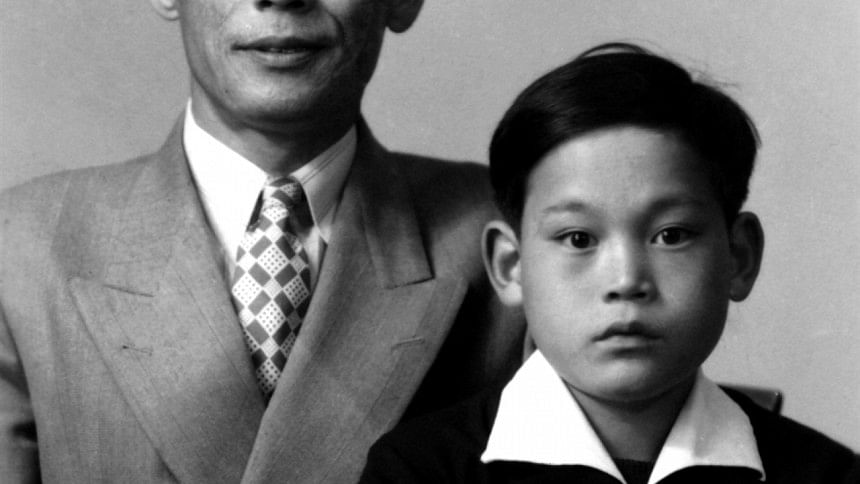The man who built Samsung: A tale of strategy, controversy, success

Lee Kun-hee, Chairman of Samsung Electronics and the man widely credited for transforming Samsung into a global giant, breathed his last on Sunday in Seoul, South Korea. He was 78 at the time of his demise and was admitted in a hospital for the last six years following a heart attack, according to a statement released by Samsung.
The prodigal son
In 1965, Lee Kun-hee, the third son of Samsung's founder Lee Byung-chul, graduated from the Waseda University in Tokyo with a degree in Economics and one year later, started his career at Tongyang Broadcasting Company, a Samsung affiliate at that time.
In 1987, he took over the chairmanship of Samsung group, two weeks after his father's death. Lee had a grand vision in mind and plotted radical changes in the way Samsung conducted its businesses. He believed that Samsung, at that time, was focused heavily on producing "second-rate" electronic components—a belief held equally by its Western counterparts.

"We are in a very important transition. If we don't move into more capital and technology-intensive industries, our very survival may be at stake," said Lee in a Forbes interview shortly after taking charge at the helm of the company.
In 1993, he called on his executives in a meeting at Frankfurt, Germany and famously said, "Change everything except your wife and children," urging the company to bring a radical shift from the old ways of working and thinking.
As an assertive Chief Executive, Lee launched a dramatic revolution against the authoritarian style of operating family business in South Kora, in what he termed as the "New Management" concept where sub-ordinates would point out errors to their bosses, women would come to the executive fore-fronts and talent would be brought in from overseas, among other innovative drives in the business model.
Along with a complete overhaul of the traditional ways of business operations, Lee emphasised heavily on increasing the quality of Samsung's products, even if it meant lower market shares. In 1995, as a part of his emphasis on quality, he visited a Samsung plant in the town of Gumi, South Korea and oversaw the destruction of $50million worth electronics products as they were found to be defective and low-grade.
Lee Kun-hee's revolution paid off in a grand manner. By 1996, Samsung was the world's leading exporter of memory chips and by 2006, Samsung overtook Sony as the world's largest manufacturer of televisions with a market share of over 20%. In the late '90s, Lee steered Samsung safely through the Asian Financial Crisis to become one of the largest conglomerates in the world at the beginning of the 21st century.
Today, Samsung is one of the world's largest producers of electronic devices, one of the world's top corporate spenders in R&D and effectively the cornerstone of South Korea's economy with producing about a fifth of the country's total exports.
The web of controversies
In 1996, Lee Kun-hee was among 11 prominent South Korean businessmen who found themselves in a political scandal over "corporate contributions" to the then-president Roh Tae-woo. Lee was sentenced to two years in prison by a court, although the punishment was suspended for three years. He was then pardoned by President Kim Young-sam.
The 1996 probe opened a fissure into the scandalous ways family businesses operate in South Korea, customarily known as "Chaebol", where the family uses the unilateral power of ownership to exert influence over key management decisions. It was made clear that although Lee Kun-hee brought an overwhelming change in the traditional ways of business inside Samsung, he still reigned over as the grand strategic leader.
More than a decade later, in 2008, Lee was again found guilty of tax evasion and financial wrongdoings. Although prosecutors requested a seven years term, the court decided to go for three years suspended sentence along with $98 million in fines. He was pardoned in December 29, 2009, by the then-president Lee Myung-bak stating that the pardon was made effective so that he could lobby to bring the Winter Olympics to Pyeongchang in 2018.

However, Lee Myung-bak would later be sentenced to 15 years in prison after it was revealed that he accepted $5.4 million as bribes from Samsung to pardon Lee Kun-hee.
In a 2010 book titled, Think Samsung, Kim Yong-chul, former legal counsel for Samsung, claimed that Lee Kun-hee stole up to $8.9 million from Samsung subsidiaries, tampered with evidence and even bribed government officials to ensure that his son succeeds him.
In 2012, Lee's older brother and older sister sought legal action against him claiming that their father had willed $850 million in Samsung shares to them which Lee was withholding. In 2014, a South Korean court dismissed the case.
A lasting legacy
Despite a web of scandals and controversies, Lee Kun-hee remains known largely as the man who transformed Samsung from a humble grocery trading store to one of the biggest corporations in the world and a major competitor in the electronic goods market.
Despite being found guilty in 2008 of tax evasions, and later pardoned, he was made Samsung's chairman again in 2010. In 2014, he suffered a heart attack and his son, Lee Jae-yon, Vice Chairman of Samsung electronics became the de facto leader and the public face of the company ever since.
It is assumed that Lee Jae-yon will officially succeed his father as the chairman of Samsung and continue the legacy.

 For all latest news, follow The Daily Star's Google News channel.
For all latest news, follow The Daily Star's Google News channel. 



Comments